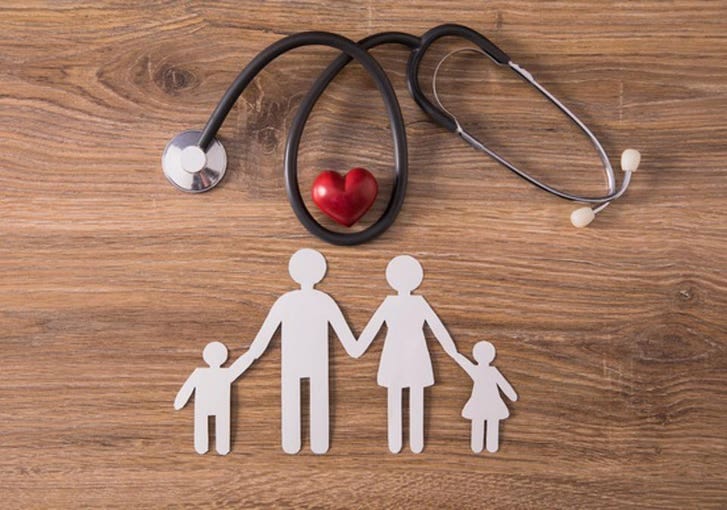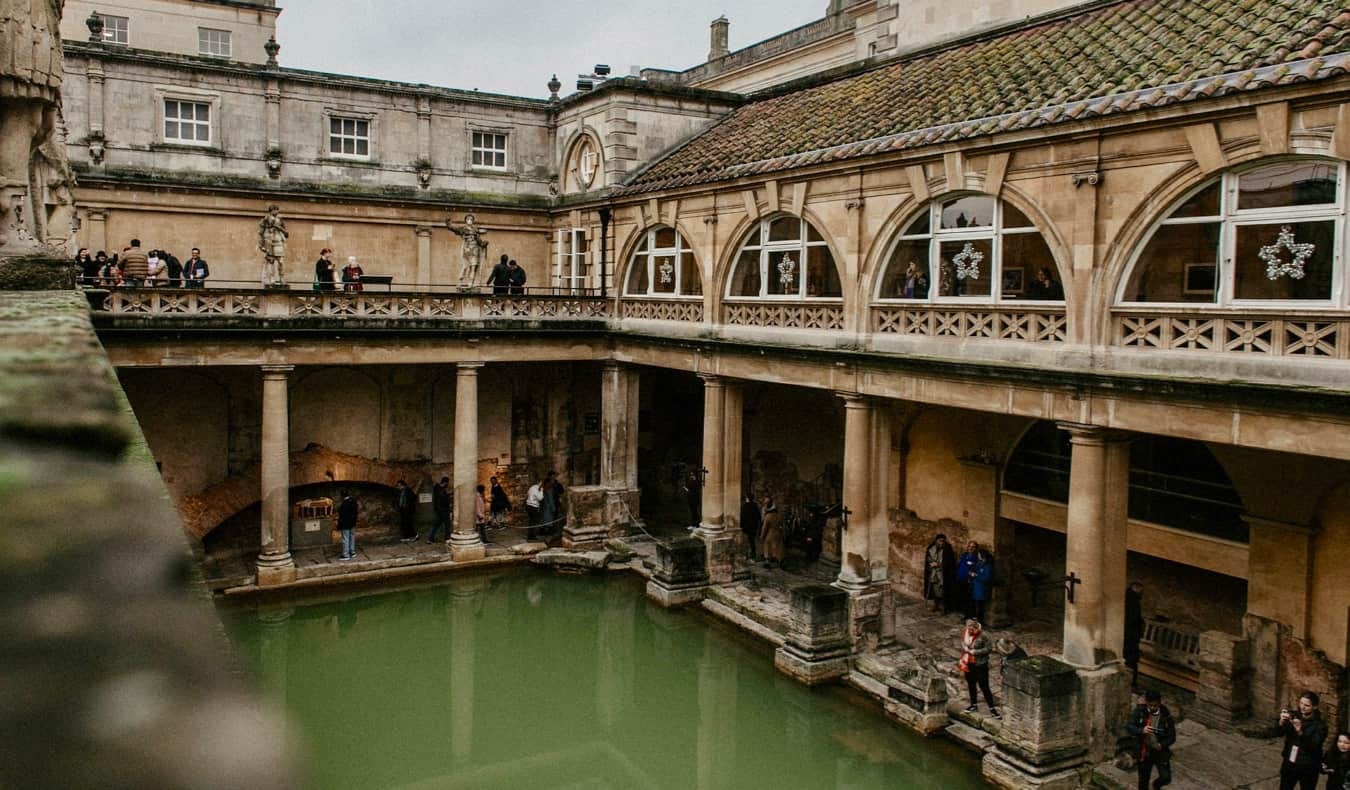Maimonides Health Insurance, Ltd
What's God's part in health and sickness?

Dear Healthy Jew,
My recent sickness got me wondering about the division of responsibilities between God and man in maintaining health. Last week I suggested that our job is to choose health, and God decides the results.
I thought this conclusion was obvious, and assumed that most religious folks – of any tradition or era – would concur. But when I looked up Maimonides on the subject, my confidence wavered.
“I Guarantee…”
Concluding his chapter on healthy lifestyle (Laws of Character Traits, Chapter 4), Maimonides delivers the following bold assurance:
I guarantee that anyone who accustoms himself in the ways that we’ve instructed won’t be sick all his life until he gets very old and dies. He won’t need the doctor, and his body will be whole and strong all his days.
Woops! Maimonides unequivocally handed us our own health, apparently leaving God out of the picture.
Again in his Guide to The Perplexed (3:12), while discussing how a good God allows bad things to happen in the world, Maimonides explains that all physical and mental illnesses result from our own unhealthy choices, so it’s unfair to attribute to God such self-induced miseries.
Welcome to Maimonides Health Insurance, Ltd, the most confident insurer of all time. If you follow the company’s flagship healthy living plan, your health is guaranteed. Only if you flout the plan’s terms will sickness be your lot.
Like any good insurance company, Maimonides lists three classes of people who won’t be accepted onto the plan:
Unless [1] his body was bad [i.e. sick] from the beginning, [2] he was accustomed to a bad habit from when he was born, [3] or if famine and plague strike the world.
We’ll get back to these exclusions later. Now let’s consider Maimonides’ basic proposal. Does he really mean to remove God from health and sickness? That simply can’t be. The Torah and Sages often and explicitly refer to God as The Doctor, a title which includes, as I wrote last week, His maintaining our health.
For example, the centerpiece of Jewish liturgy, the Amidah, contains the following prayer. (Just in case it’s helpful, I’ll note that Maimonides transcribed it in his rendition of of all Jewish liturgy.)
Heal us God, and we will be healed; save us God [from illness], and we will be saved, because you are [the object of] our praise. Heal with complete recovery all our afflictions, because you are the Almighty, King, Faithful Doctor, and Merciful. Blessed are you, God, healer of the sick of Israel your nation.
Can’t get clearer than that, right?
Searching for Maimonides’ World
The solution, I believe, lies in trying to picture how we’d sign up for Maimonides Health Insurance and live out our days in healthful bliss.
My friends, I don’t want to disappoint you, but it’s pretty much impossible. The world has changed so much since 12th century Spain and Egypt that following all of this plan’s suggestions is downright unhealthy and culturally unacceptable. For example, Maimonides discourages drinking much water (wine is better) and eating fruits, which can easily land you dehydrated and nutritionally deficient. He also advises bathing once a week, which wouldn’t go over well today in most social circles.
I’m not claiming to know better than Maimonides. Most contradictions to modern science can be easily resolved with some historical context. Back in the day, water sources were easily contaminated, refrigeration of fresh produce didn’t exist, and bathhouses were hotbeds of infection.
Medieval life was quite different than ours. In some ways if was healthier. Most people exercised in orders of magnitude more than today, and everyone ate only Real Food (because food-like substances hadn’t yet been invented).
Nevertheless, as we’ve seen before (for example here), many of Maimonides’ general principles of healthy living are relevant as ever. Perhaps his guarantee of health can also be applied today, if we’d just adapt the details to our changed circumstances?
Here’s where facts end and speculation reigns, because even if we’d accept Maimonides’ medical advice as eternally true, his comprehensive health insurance plan has long lost any context.
The only way to approach Maimonides’ world is to move to a pollution and radiation free mountain, eat only the produce that you grow in your own field, wear the clothing you weave yourself from your own sheep’s wool, and live in a cabin made from untreated logs your felled from the nearby woods. You’d also need to bring along a family and community of like-minded fundamentalist Maimonideans, because social fabric is a critical component of healthy living. Even if you’d manage all that, I’m not convinced that nothing ominous will seep in: without any technology to detect modern menaces – that would require being on the electric grid, and then it’s all over – you probably wouldn’t notice if arsenic or lead have tainted your crops and water.
All things considered, we’ll get much farther by learning and living with healthy habits and behaviors, culled from sources both modern and traditional, that can be easily integrated into twenty-first century living. Some of them we might even learn from Maimonides.
Where does this leave us? Maimonides delegated us with complete responsibility for our health, guaranteeing a positive outcome. Yet it’s impossible for us to fulfill our side of the bargain. The most we can achieve is some unknown percentage.
Science and Society Are Always Changing
This all begs a question. Maimonides wasn’t a prophet, so we can’t blame him for not anticipating antibiotics, refrigerators, and people who drive through life inside metal boxes on wheels instead of walking. But shouldn’t he have considered that advances in medical sciences might one day render his advice obsolete? Shouldn’t he have suspected that changed circumstances might make it impossible for future generations to follow his suggestions?
I’m not asking from Maimonides anything more than for him to follow his own example. Throughout his writings, he consistently ignores the Talmud’s vast corpus of medical advice, apparently because he understood that the Mediterranean basin of the 12th century calls for a radically different way of living than 5th century Mesopotamia. Perhaps he even believed himself a better doctor than the Talmudic sages, similar to what he wrote (Guide 2:4) that mathematics and astronomy weren’t fully developed in Aristotle’s times. So why did he codify his guaranteed health insurance plan for all generations of Torah scholars to come?

Exclusions from the Maimonides Health Insurance Plan
Moving on to Maimonides’ own three exclusions from his health insurance plan, the picture becomes even murkier.
Does a “bad body from the beginning,” Maimonides’ first caveat, include only symptomatic diseases and defects that were easily discernible from birth, or is any genetic predisposition or defect excluded as a preexisting condition? Is it possible that the ancient world’s wholistic diagnostic approach might have predicted future maladies that no blood test of CT can detect, rendering many childhood or even adult conditions uninsured by Maimonides? Your guess is as good as anyone’s.
Maimonides’ second condition excludes anyone who grew up with unhealthy customs, another preexisting condition of sorts. Now, is there anyone in the world today that doesn’t carry a load of imperfect habits from childhood or adolescence? And is the modern world better or worse in this respect than Maimonides’ era? Again, I’m doubtful anyone knows the answer.
Finally, Maimonides excludes “famine and plague,” what insurers might call “acts of God.” It’s not far-fetched to translate that to any nutritional deficiency or infectious disease, which includes an extremely wide range of diseases and conditions that today usually affect individuals, but until recently often struck whole communities and even countries.
My guess? Looking at the overall picture, I wager that for all of history these three stipulations have allowed for plenty of maladies to affect everyone - even people who did their utmost to live healthfully.
God Always Had the Final Say in Our Health
If I’m right, we needn’t fret too much about not being able to faithfully follow Maimonides’ health insurance plan, because even in its heyday there was plenty of room left for God to decide health, illness, life, and death. Then God worked through famine-caused malnutrition and hordes of infectious diseases. Today God uses cancer, autoimmune disease, and viruses. Then and today God controls genetics and the lingering effects of old behaviors. Finally, God decides the results of our non-compliance to healthy lifestyle advice, whether our shortcomings were caused by choice or by conditions beyond our control.
The exact division of labor between God and man has dramatically changed. It probably will continue to change. Yet Maimonides’ bold promise calls us to action as strong as ever, and the message behind it can resonate in 21th century Bet Shemesh, Israel as strongly as 12th century Fostat, Egypt.

Maimonides didn’t mean that our health and lifespan are categorically ours to claim or to squander. He was making a point, teaching a spiritual value: healthy choices build a complete life, because they encompass everything needed to live long and healthy. By living in healthy balance, we choose ourselves into becoming complete and balanced human beings. This choice and its results are completely ours, guaranteed.
Maimonides’ employed the unequivocal language of health insurance so that we won't believe healthy choices are merely nice ideas to try out when convenient, and that even if we don’t bother, God is great and will gladly pick up the pieces. No, God in His greatness put every area of our lives under our own trustworthy care. To the extent our choices affect our health, their positive results are guaranteed. We cause 100% of the many health outcomes that result from lifestyle choices. There’s nowhere to run, and there’s nowhere we need to run.
Yet this doesn’t mean we won’t ever fall ill. Maimonides’ three caveats, with all their everchanging terminology and parameters, together with any gaps in our compliance to healthy living, whatever their cause, all compose God’s part in health and sickness. Therefore, even if we’ve created the entire setting to thrive in health, health itself remains a gift from God, because many causes and conditions remain beyond our control.
In a nutshell, Maimonides’ promise shouldn’t be read as a health insurance plan, but as the spiritual wisdom of Torah. Which kinda makes sense, because it’s part of a Maimonides’ magnum opus that codifies all of Torah law.
Percentage Values and Moral Values
All this can give context and meaning to the statistical language of modern health sciences. For example, we’ll say that smoking raises the risk of lung cancer, exercise reduces the risk of cardiovascular disease, and so on. Scientists’ assessments of the percentage value for each behavior – even what exactly the behaviors are – are constantly shifting based on new research. But there always is a number.

Yet numbers alone can be deceptive, because they don’t tell the full story.
For example, a landmark meta-analysis from Harvard, documenting over 42,000 deaths over 34 years, showed that non-adherence to 5 basic healthy lifestyle behaviors raised all-death mortality by almost 61%.1
Based on what we’ve learned today, I’d first interpret this model to say that we own 61% percent and God takes 39%. Of course, the number will shift when applied to individual people. Further research might change it this way or that. But the basic partnership still remains, because the 100% of possibilities are divided between God and man.
Yet the language of percentages belies Maimonides’ lesson. The partnership isn’t split along on a graph, because the two partners don’t have comparable roles. I’m responsible for 100% of choosing wellness and my genuine humanity. To the extent my choices affect outcomes, the results are 100% guaranteed. Yet the final call is God’s alone. With the numerous ways God merges justice into nature, He sets the course of my life.
Food for Thought: Becoming a human being has no percentage value. It’s a moral value.
Thank you for reading Healthy Jew.
Here are 2 great paths to continue the journey:
Also check out this intro and index to explore hundreds of posts about our 3 Healthy Jew topics: Wellness with Wisdom, Land of Life (Israel), and Sensible Spirituality.
Finally, always feel free to reach out here with any comments, questions, or complaints:
I look forward to hearing from you!
Be well,
Rabbi Shmuel Chaim Naiman
https://www.ahajournals.org/doi/10.1161/CIRCULATIONAHA.117.032047










